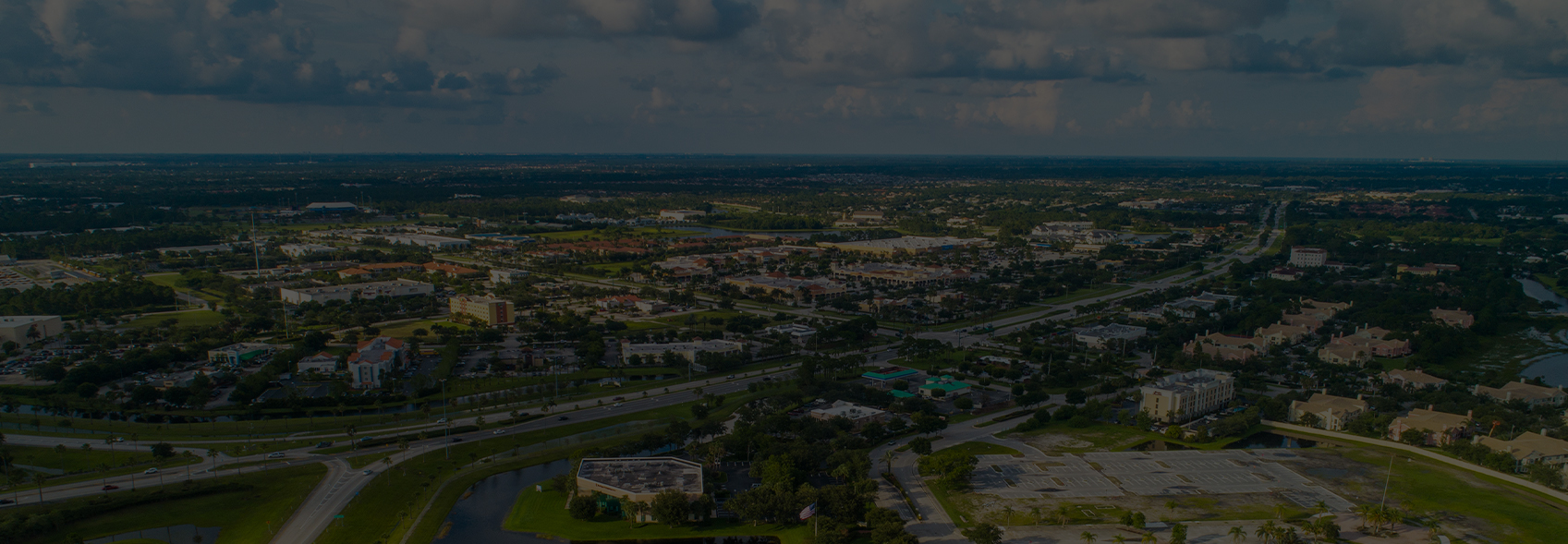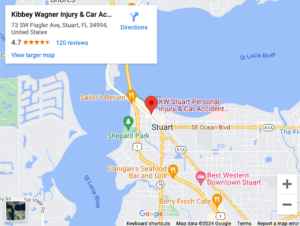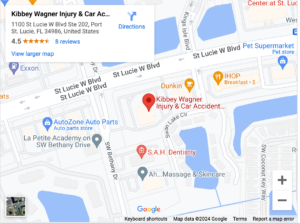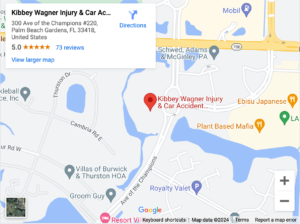
Contrary to what some motorcyclists believe, Florida has a wide-ranging helmet law. But the law includes an exception that makes it virtually impossible to enforce. As a result, many motorcyclists in Port St. Lucie, Florida, go helmetless.
However, riding without a helmet exposes motorcyclists and their passengers to enormous risks. Their odds of sustaining head injuries increase dramatically. And under Florida law, helmetless riders might not receive full injury compensation due to their risky actions.
Read on to learn about Florida motorcycle helmet laws and how motorcyclists can seek compensation after a motorcycle accident. Contact Kibbey Wagner Injury & Car Accident Lawyers at (772) 247-3374 for an initial free consultation.
How Kibbey Wagner Injury & Car Accident Lawyers Can Help After a Motorcycle Accident in Port St. Lucie

Kibbey Wagner Injury & Car Accident Lawyers was founded in 2014 and has helped hundreds of accident victims since then. Our firm’s Port St. Lucie motorcycle accident attorneys have over 40 years of combined legal experience, including representing insurance companies before switching sides to represent accident victims.
The personal injury lawyers at Kibbey Wagner Injury & Car Accident Lawyers have recovered over $60 million in injury compensation for our clients. Some case results include:
- Auto accident settlement of over $6 million
- Trucking accident settlement of $4 million
- Pedestrian accident settlement of over $1 million
Some of the ways the firm’s legal team can help include:
- Internally investigating your case to collect evidence and determine the extent of your damages
- Handling all negotiations with the other party to arrive at a fair settlement
- Filing a lawsuit and taking your case to trial if the circumstances call for it
Even though Florida requires all motorcycle riders to have a license to operate a motorcycle in order to ensure that all motorcyclists have the knowledge and skill to ride safely, traffic accidents still happen.
A traffic accident in Port St. Lucie, FL, can cause catastrophic injuries that require expensive treatment and prevent you from working. Contact Kibbey Wagner Injury & Car Accident Lawyers for a free consultation to discuss how we can help you recover compensation for your injuries.
How Common Are Motorcycle Helmet Laws?
Florida joins a majority of states with its helmet law. The District of Columbia and 47 states have motorcycle helmet laws. Illinois, Iowa, and New Hampshire are the only states that do not require helmets.
However, most of these motorcycle laws do not apply to all motorcycle riders. In 28 states, including Florida, the laws only apply to riders under a certain age. Only 19 states have universal helmet laws with no exceptions.
Motorcycle helmet laws come from two competing interests. First, helmets protect riders. According to one study, motorcycle helmets saved over 25,000 lives across the U.S. between 2002 and 2017. As a result, states want to encourage riders, particularly young riders, to wear helmets.
Second, many states, including Florida, want to accommodate riders who prefer not to wear helmets. Personal comfort in hot weather plays a factor. Personal freedom to ride helmetless is another factor. As a result, many states create exceptions to their helmet laws for responsible adults.
Overview of Florida Motorcycle Helmet Laws
Florida’s motorcycle helmet law starts with the general statement requiring motorcycle helmets. Specifically, people in Florida “may not operate or ride upon a motorcycle unless the person is properly wearing protective headgear.”
The law then provides an exception that makes the law difficult to impossible to enforce. Under Florida law, a motorcycle operator or passenger can ride without a helmet if the person is over 21 years old and has at least $10,000 in medical insurance coverage.
The purpose of this exception was to allow insured adults the choice of whether to wear a helmet or take financial responsibility for their injuries if they do not. But due to the exception, police officers cannot enforce the law without wasting substantial time.
Most of the time, police officers cannot tell a rider’s age from a distance. And if the rider is over 21, police officers do not want to spend time during a traffic stop verifying their insurance details.
Reasons Motorcyclists Should Still Wear Helmets
Even though Florida law gives adults with health insurance the choice to ride without a helmet, all motorcyclists should still consider wearing one.
A Helmet Can Save Your Life
Helmets reduce your odds of dying in a motorcycle accident by 37% for operators and 41% for passengers. They do this by reducing your risk of a head injury by up to 69%.
Head injuries are the third most common injury suffered in a motorcycle crash, after leg and arm injuries. But the risk of a serious head injury jumps significantly if you do not wear a helmet. Without a helmet, you have a much higher risk of fracturing your skull or suffering a brain contusion.
A Helmet Can Protect Your Right to Injury Compensation
Florida’s no-fault insurance law does not apply to motorcycles. If you get injured in a motorcycle crash, you must seek injury compensation from the at-fault driver.
But if you were not wearing a helmet, the driver can push some blame for your injuries onto you. Florida uses modified comparative negligence to allocate fault after an accident.
Schedule a Free Consultation With Our Port St. Lucie Motorcycle Accident Lawyers
Even if you wear a helmet, a motorcycle crash can cause significant injuries. To discuss the compensation you can seek for your motorcycle accident injuries, contact Kibbey Wagner Injury & Car Accident Lawyers for a free consultation. The firm’s Port St. Lucie motorcycle accident lawyers are here to help.




